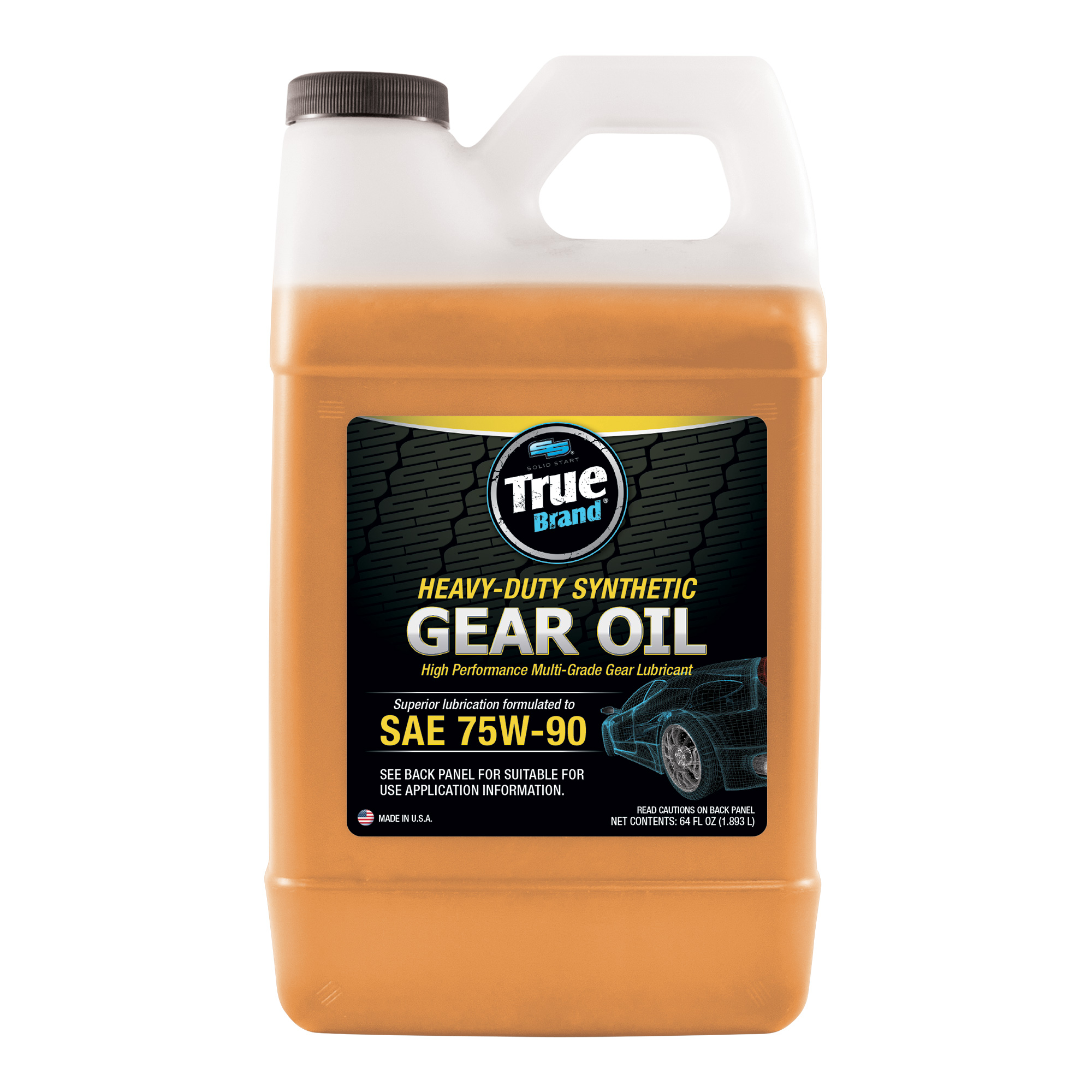Yes, you can mix gear oil brands as long as they have the same viscosity rating. Mixing different brands of gear oil can be done without causing any issues as long as the viscosity ratings match.
It is crucial to ensure that the gear oils are compatible and have similar specifications to prevent any potential problems in the long run. By sticking to the same viscosity grade, you can mix gear oil brands to maintain your vehicle’s optimal performance and protection for its gears.
Remember to always consult your vehicle’s manual for specific recommendations on gear oil types and mixing guidelines.
The Basics Of Gear Oil
Gear oil is a type of lubricant that is specifically designed to protect gears and bearings from wear and tear. It is commonly used in automotive transmissions, manual gearboxes, and industrial machinery. Choosing the right gear oil is essential to ensure the smooth operation and longevity of your equipment. In this article, we will discuss the basics of gear oil, including types and purposes and key ingredients.
Types And Purposes
There are two main types of gear oil: mineral oil-based and synthetic-based. Mineral oil-based gear oils are made from crude oil and are less expensive than synthetic-based oils. They are suitable for use in moderate to high-temperature applications and are commonly used in passenger cars and light-duty trucks. Synthetic-based gear oils, on the other hand, are made from chemically modified petroleum components or synthetic base stocks and offer superior performance in extreme temperature and pressure conditions. They are commonly used in heavy-duty trucks, racing cars, and industrial machinery.
The purpose of gear oil is to lubricate the gears and bearings in your equipment to prevent metal-to-metal contact, which can cause wear and tear and lead to equipment failure. Gear oils also help to dissipate heat and reduce friction, which can improve fuel efficiency and extend the life of your equipment.
Key Ingredients
Gear oils contain a variety of additives that enhance their performance and protect your equipment. Some of the key ingredients in gear oil include:
| Additive | Purpose |
|---|---|
| Viscosity modifiers | Improve the oil’s viscosity index to maintain its performance in a wide range of temperatures. |
| Extreme pressure additives | Protect gears and bearings from wear and tear under extreme pressure conditions. |
| Anti-wear agents | Reduce wear and tear on gears and bearings and extend the life of your equipment. |
| Friction modifiers | Reduce friction between gears and bearings to improve fuel efficiency and reduce heat. |
It is generally recommended that you do not mix different brands of gear oil, as each brand may have slightly different additive packages that can react with each other and potentially cause damage to your equipment. It is always best to use the same brand and type of gear oil that is recommended by the manufacturer of your equipment.

Credit: www.amazon.com
Brand Loyalty Vs. Practicality
When it comes to maintaining your vehicle’s gear system, the question of whether you can mix gear oil brands often arises. This debate brings to light the conflict between brand loyalty and practicality. Let’s delve into the considerations surrounding this issue to help you make an informed decision.
Brand-specific Formulations
Various gear oil brands have unique formulations that are meticulously designed to cater to specific performance requirements. Mixing different brands can lead to an unpredictable chemical interaction. This can compromise the overall effectiveness of the oil, potentially causing issues with lubrication and wear protection.
Myths And Realities
- Myth: Mixing different gear oil brands can lead to improved performance.
- Reality: In reality, combining different brands can disrupt the carefully balanced additive packages, resulting in suboptimal lubrication and potential damage to the gear system.
- Myth: Brand loyalty is the only factor to consider when choosing gear oil.
- Reality: While brand loyalty is important, prioritizing the compatibility and performance of the gear oil is crucial for maintaining the longevity of your vehicle’s components.
The Science Behind Mixing
When it comes to mixing gear oil brands, it’s generally not recommended due to potential compatibility issues. Different additives and viscosity levels can adversely affect performance and protection. It’s best to stick to one brand for optimal gear lubrication and to prevent any potential damage.
Chemical Compatibility
When it comes to mixing gear oil brands, it’s important to consider the chemical compatibility of the different products. Mixing oils with incompatible additives can lead to chemical reactions that may affect the performance and longevity of your equipment. It’s always recommended to consult the manufacturer’s recommendations or a professional before mixing different gear oil brands.Performance Impacts
Mixing gear oil brands can have various performance impacts on your machinery. The additives present in different oil brands can have different properties, such as viscosity, detergency, and anti-wear capabilities. Mixing oils with different additive packages can alter these properties and potentially compromise the lubrication performance. This can result in reduced efficiency, increased wear, and potential damage to your equipment. To better understand the impacts of mixing gear oil brands, let’s take a closer look at some specific scenarios: 1. Viscosity Differences: Mixing gear oils with significantly different viscosities can lead to inadequate lubrication or excessive heat generation. This can negatively affect the performance and lifespan of your equipment. 2. Additive Interactions: Different gear oil brands may contain additives that are not compatible with each other. These incompatible additives can react and form deposits or sludge, impairing the lubricating properties of the oil. 3. Seal Compatibility: Some gear oils are specifically formulated to be compatible with certain types of seals or gaskets. Mixing brands without considering seal compatibility can result in leakage or premature seal failure. To ensure optimal performance and avoid any potential issues, it’s generally recommended to stick to a single gear oil brand or consult the manufacturer’s recommendations. Mixing gear oil brands should be done cautiously and only after thorough research or professional advice. In conclusion, while mixing gear oil brands may seem convenient, it’s crucial to consider the chemical compatibility and potential performance impacts. Consulting experts or referring to manufacturer guidelines can help you make an informed decision and ensure the longevity and efficiency of your equipment.Real-world Experiences
Mixing different brands of gear oil is not recommended as it can affect performance and durability. It’s best to stick with one trusted brand for optimal results and to avoid potential issues with compatibility and effectiveness in real-world experiences.
Professional Mechanics’ Views
Professional mechanics have encountered various scenarios when it comes to mixing gear oil brands. While some mechanics believe that mixing different brands is acceptable, others advise against it. The primary concern for professional mechanics is the compatibility and performance of the gear oil when mixed.
Some mechanics argue that as long as the gear oil specifications and viscosity ratings are similar, mixing brands should not pose significant issues. They emphasize the importance of choosing gear oils with the same API (American Petroleum Institute) rating to ensure compatibility. However, it is crucial to note that mixing brands can potentially affect the performance and longevity of the gear oil.
Other mechanics, on the other hand, recommend sticking to a single brand to ensure consistent quality and performance. They argue that different brands may use different additives and formulations, which could lead to unpredictable results when mixed. To avoid any potential complications, they advise against mixing gear oil brands.
Diy Enthusiasts’ Stories
DIY enthusiasts often have their own experiences to share when it comes to mixing gear oil brands. While some DIYers have successfully mixed different brands without any issues, others have encountered problems. It is important to keep in mind that DIY experiences may vary, and what worked for one person may not necessarily work for another.
Several DIY enthusiasts reported that they mixed gear oil brands due to availability or cost considerations. In some cases, they mixed brands with similar specifications and found no adverse effects on their vehicles’ performance. However, others reported experiencing issues such as increased noise, reduced gear shifting smoothness, or even premature wear on components.
It is crucial to exercise caution and consider the potential risks before deciding to mix gear oil brands as a DIY enthusiast. Consulting with a professional mechanic or following the manufacturer’s recommendations is always advisable to ensure optimal performance and longevity of your vehicle’s transmission system.
Manufacturer’s Recommendations
When it comes to mixing gear oil brands, it’s crucial to consider the manufacturer’s recommendations. Adhering to these guidelines can help prevent any potential issues that may arise from mixing different brands of gear oil.
Warranty Concerns
Manufacturers often specify that using a different brand of gear oil may void the warranty on certain components. This can be a significant concern for vehicle owners who rely on the warranty to cover any unexpected repairs or replacements.
Official Guidelines
Official guidelines provided by the gear oil manufacturer outline the specific types and brands of gear oil that are compatible with their products. Deviating from these recommendations can lead to decreased performance and potential damage to the equipment.
Potential Risks Of Mixing
Mixing different brands of gear oil can lead to potential risks that may impact the performance and longevity of your equipment. It’s important to understand the consequences of mixing gear oil brands to avoid costly damages and complications.
Degradation And Damage
Mixing gear oil brands can result in chemical reactions that cause degradation of the oil properties, leading to equipment damage.
Voiding Warranties
Mixing gear oil brands can void warranties provided by manufacturers due to the increased risk of malfunctions.
Benefits Of Sticking To One Brand
When it comes to mixing gear oil brands, staying consistent can be advantageous. By sticking to one brand, you ensure consistency in performance and gain peace of mind.
Consistency In Performance
When all components of your vehicle’s drivetrain are lubricated with the same brand of gear oil, you promote optimal performance and efficiency.
Peace Of Mind
Choosing a single brand of gear oil gives you confidence in the quality and compatibility of the product, reducing the risk of unexpected issues.

Credit: www.solidstart.com

Credit: www.reddit.com
Frequently Asked Questions
Can You Mix Different Brands Of Gear Oil?
Yes, it’s generally safe to mix different brands of gear oil as long as they have the same viscosity and performance ratings. However, it’s best to stick with one brand for optimal compatibility and performance.
What Happens If You Mix Different Gear Oil Brands?
Mixing different gear oil brands can lead to unknown chemical reactions and potential performance issues. It’s best to avoid mixing brands to ensure the proper functioning and longevity of your gear system.
Is It Okay To Mix Synthetic And Conventional Gear Oils?
While it’s generally not recommended, in some cases, it may be acceptable to mix synthetic and conventional gear oils. However, it’s crucial to consult the manufacturer’s guidelines and consider potential effects on performance and warranty.
Conclusion
Mixing gear oil brands can have negative consequences, including reduced performance and potential damage to your vehicle’s gears. It’s best to stick with the manufacturer’s recommended brand and type of gear oil to ensure optimal performance and longevity of your vehicle.
While mixing brands may seem like a quick fix, it can ultimately lead to costly repairs and decreased reliability. Play it safe and stick with what works best for your vehicle.


